In the world of medicinal plants, the uniqueness of the black seed stands out, especially for being one of the top five highly researched plants globally.
Popularly known in the West as Nigella Sativa, the great ancient history of the black seed speaks to the need for it to be embraced by all. The plant is native to the Mediterranean and southwest Asia and is cultivated across Egypt, India, Germany, France and the Middle East.
Pertinently, black seed was known in the Old Persian as “panacea” meaning cure all. The fact that fathers of medicine including Avicenna and Hippocrates recommended the black seed and even extolled its unparalleled therapeutic and prophylactic health benefits is enough to declare it an indispensable herb. Thus, if I am to choose just a herb, it would be the black seed.
Photochemical analysis of the great Nigella Sativa has revealed the presence of topnotch nutrients needed for the treatment of a wide array of health issues and maintaining effective wellbeing for all age groups. The plant is available as raw seed, oil and powder and has been shown to contain more than 10 amino acids, carbohydrate and fats.
It is adequately packed with calcium, potassium, iron, magnesium, zinc, selenium and sodium, essential oils including lineolic acid, lileolic and lilonelic acids. It is a house for numerous vitamins including vitamins A, B1, B2, B3, B6, and C, thus making it a complete food for all the systems of the body. Essentially, the active ingredients of the black seed include thymoquinone, thymohydroquinone and nigellone.
The list of health benefits of the unique seed captured here is inexhaustive. A plethora of research studies have proved its curative role in the treatment of asthma, high blood pressure, diabetes, more than 10 types of cancers, constipation, psoriasis and the list goes on.
From time immemorial, it has been proven to be one of the most effective antiviral, antihelminthic, antifungal and antibacterial herbs. Researchers across Africa, Europe and the Middle East have reported outstanding successes in the cure of hepatitis, HIV and even MRSA bacteria with the use of black seed and other herbs. The immunodulatory benefits of Nigella Sativa have been attested to by researchers at the Immuno-Biology Laboratory in South Carolina. The researchers found the black seed to increase the stimulation of neutrophil granulocyte- the most abundant white blood cell in the body.
Among the list of researchers whose results confirm the therapeutic power of the black seed in cancer cure is Dr. Hwyda Arafat of the Kimmel Cancer Centre, Thomas Jefferson University, USA. Her findings showed an 80% death of cancer cells and unique inhibition of the gene transcription and so the cancer cells are not able to replicate. Pertinently, there are four different patents on the use of the black seed in the United States and one in the United Kingdom.
They include stimulant for the immune system (US 5,482,711), treatment of diabetes (US 6,042,834), Inhibition of cancer cell growth (US 5,653,981), effective treatment of infections (US 6,841,174), psoriasis (US6,531,164) and asthma (UK EP1709995). To this end, the comment of Professor Peter Schleicher, MD is apt. According to him, “calling the black seed a magic cure would amount to an overstatement, but it is quite impossible not to exaggerate its effectiveness”.


